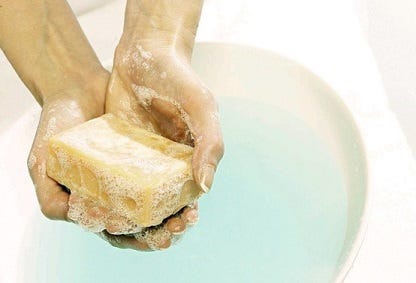Water Testing Myth: Total Hardness > Calcium Hardness

For a long time now I’ve been teaching and speaking about how important water balance is in pool and spa water.
Oddly, whenever I ask an audience of pool service technicians if they do a hardness test, the silence is deafening! It seems the hardness test is the black sheep of the testing family.
Why is this? Well, part of the reason is many techs don’t understand the role of hardness testing. They have been led to believe that a test for total hardness is better than a test for calcium hardness. WRONG!

Here’s an easy way to understand the concept of water hardness. When you’re in the shower and you find it’s difficult to get the bar of soap to produce suds, that’s because the water is considered hard. Conversely, the softer the water, the easier it is to get the bar of soap to lather.
Although total hardness is the sum of calcium hardness and magnesium hardness, we only need be concerned about the calcium hardness. It’s the calcium hardness that can cause extensive damage to pools/spas if levels are not kept in check.
Too much calcium hardness can produce scale, resulting in
- crusty deposits on walls/steps/floors,
- clogged filters,
- reduced circulation,
- cloudy water,
- and heater inefficiency.
Too little calcium hardness and water will try to balance itself by seeking calcium from whatever source it can, resulting in
- etched plaster,
- pitted concrete,
- dissolved grout,
- and pitted pool decks.
On the other hand, magnesium hardness does not contribute to scale in pool or spa water at all. In fact, when doing a calcium hardness test, you may see small purplish dots floating in the treated sample. This is magnesium hardness coming out of solution because of the high pH environment in the sample tube. Its presence will not interfere with the final blue endpoint color of a hardness test.
So remember…when you’re talking water balance (the measurement of water’s acidic nature or scale-forming nature), a test for calcium hardness is the way to go if you want to prevent scaling water.

